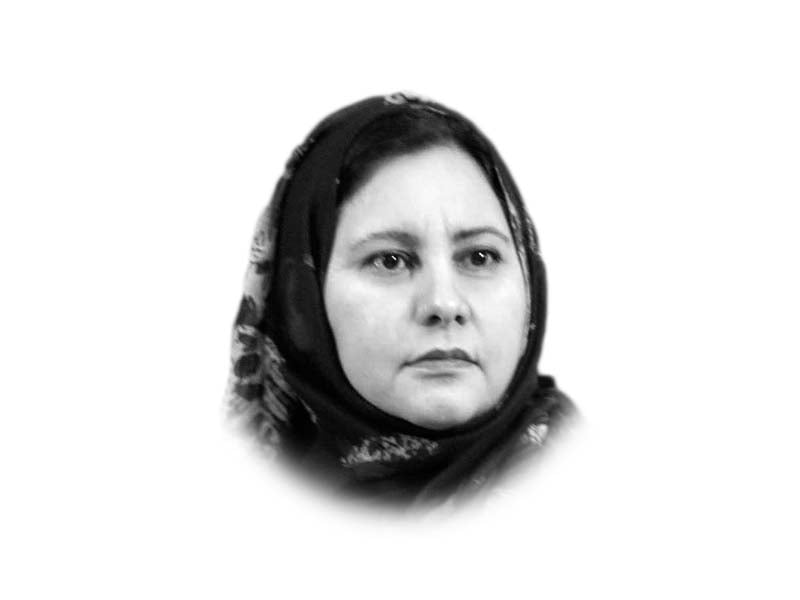
A common misconception goes that Iqbal’s idea of insan-e-kamil achieved at the epitome of khudi has been derived from Nietzsche’s Ubermensch, commonly referred to as Superman. Iqbal himself had made it clear that his idea was initially taken from the works of sufi literatures of al‑Jīlī and Ibn al-Arabī; and later we see the evolution of the idea in his own thought.
Nevertheless, it should be noted that the idea of the Ubermensch is based on Nietzsche’s materialistic interpretation of historical forces. Nietzsche’s notion that ‘time’ is circular posits that history is repetitive; and his recourse in Darwinism sets him at a position of denial of the self as a purposeful entity as believed by Iqbal. Moreover, his denial of God, immortality and the hereafter, all throw him miles apart from Iqbal.
Nietzsche announces in Thus Spoke Zarathustra that God is dead, and renounces the other-worldliness related to God as a thing that the Ubermensh has to overcome in order to give meaning to life on earth. Clearly, all this stands in absolute contrast with the insan-e-kamil who, in the person of the Prophet (peace be upon him), is a doubtless believer in God and the hereafter.
Nietzsche had detoured from Darwin’s three principles of survival, reproduction and natural selection, and emphasised upon the ‘will to power’ in place of the ‘will to survival’. This because Nietzsche disapproves of the Darwinian notion that nature or some cosmic force is committing the act of natural selection as a means to a predetermined end, rather Nietzsche’s ‘will to power’ can become an end in itself, making life more naturalistic and make space for the Ubermensch to evolve new earthly values needed in the moral vacuum created by the death of God, that may lead humanity to moral nihilism. In contrast, Iqbal presents ishq, the ‘will to love’ that drives the insan-e-kamil towards creativity, progression and value.
Iqbal’s poetic work, Masjid-e-Qartaba, starts with the idea of ‘time’ as the very fabric of existence, upon which all events unfold. Within this fabric is contained the earthly series of day and night, the two threads upon which we weave our garments of life and death, upon which we build our characters, upon which we experience and test our potentials. Yet everything that emerges upon this fabric of time is fated to dissipate, except the events that have been constructed by men of God, only those have everlasting endurance, they make our history, our culture and provide for us the meaning of life. And the quality that makes them men of God is their true love for God. This true love is the essence of life, and death is forbidden to come close to it — it is timeless and it creates its own bounds of its own will.
Tund-o-subak sair hai gharcha zamane ki rau
Ishq khud ek sayl hai, sayl ko leta hai thaam
Ishq ki taqweem mein asar-e-rawan ke siwa
Aur zamane bhi hain jin ka nahin koi naam
Love is the drive that commands the drive of nature and of time. Love is the power that confronts the holder of khudi with its Creator.
The epitome of value for humanity being khudi, the realisation of the ‘self’. The ‘self’ for Iqbal is not an insignificant dispensable wave rising and falling in the stream of nature that has its own beginning and end, rather itself it is the very end for which the whole fabric of nature has been created! But is this ‘self’ like Nietzsche’s suprahuman, someone having powers above and beyond those of a normal human, perhaps because he can break free from the shackles of religious beliefs and become his own god — or does Iqbal’s ‘self’ take all his power from the very all-powerful omniscient, omnipresent God whom Nietzsche despises. Rather, the khudi-possessing self, and his ishq, which is nothing but his identification with the Ultimate-Self and his unrelenting relationship with Him, are what reflect in him, making his work universal and his character deep and inspirational.
Hath hai Allah ka banda-e-momin ka hath
Ghalib-o-kaar afreen, kaar kusha, kaar saaz
Khaki-o-noori nihad, banda-e-mola sifat
Har do jahan se ghani iss ka dil-e-beniaz
Uss ki umeedain qaleel, uss ke maqasid jaleel
Uss ki ada dil faraib, iss ki nigah dil nawaz
Naram dam-e-guftugoo, garam dam-e-justujoo
Razm ho ya bazm ho, pak dil-o-pak baaz
But this ishq does not mean for Iqbal a divorce from reason and logic. Rather reason and spirituality sprout from the same nucleus that is man’s identifying with his God!
Nukta’ay parkar-e-haq, mard-e-khuda ka yaqeen
Aur ye alam tamam weham-o-tilism-o-majaz
Aqal ki manzil hai woh, ishq ka hasil hai woh
Halqa’ay afaq mein garmi-e-mehfil hai woh
So, Iqbal’s superman or insan-e-kamil does not revolutionise humanity by ridding it of God and thus throwing it in an unabated, naked war of materialism. Rather Iqbal’s insan-e-kamil has been and will be confronting a revolutionary war in every generation. A war between good and evil must be fought by every soul in every era. This war keeps the ‘self’ alive, and connects souls with a revolutionary spirit. Rather Iqbal’s insan-e-kamil instills the revolutionary spirit into the ummah, turning the whole stage of the world into a battleground between good and evil, between love and hate, between Godliness and ungodliness!
Jis mein na ho inqilab, maut hai woh zindagi
Rooh-e-ummam ki hayat kashmakash-e-inqilab
Soorat-e-shamsheer hai dast-e-qaza mein woh qaum
Karti hai jo har zaman apne amal ka hisaab
Naqsh hain sub na-tamam khoon-e-jigar ke baghair
Naghma hai soda’ay kham khoon-e-jigar ke baghair
Published in The Express Tribune, June 25th, 2023.
Like Opinion & Editorial on Facebook, follow @ETOpEd on Twitter to receive all updates on all our daily pieces.















COMMENTS
Comments are moderated and generally will be posted if they are on-topic and not abusive.
For more information, please see our Comments FAQ